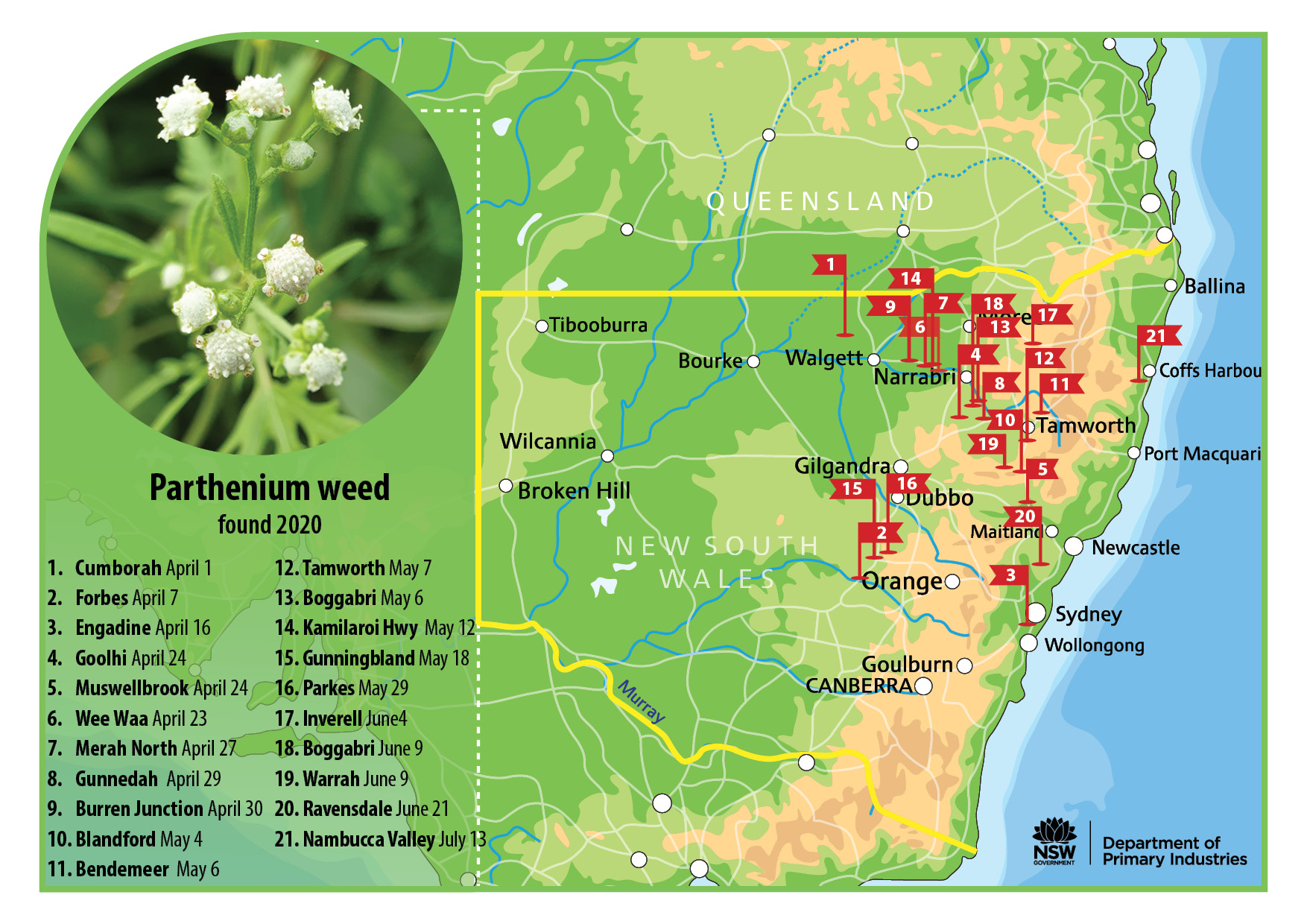
Parthenium weed, Parthenium hysterophorus, has been found on the North Coast for the first time following a call to the NSW Department of Primary Industries (DPI) Biosecurity Helpline and now efforts are underway to eradicate the weed from a Nambucca Valley property.
NSW DPI State Priority Weeds coordinator, Charles Mifsud, said Nambucca Valley Council and Bellingen Shire Council weeds officers are working with the landholder to eradicate and prevent further spread of the weed.
"We can confirm that 21 parthenium weed infestations have been identified and managed in NSW since April 1 this year, as the united efforts of the community and government agencies continue to keep the devastating weed in check," Mr Mifsud said.
"The Nambucca Valley infestation was traced to the same source, contaminated wholegrain organic chicken feed, as parthenium found at Engadine in Sydney and Ravensdale on the central coast.
"Parthenium plants found in the Nambucca Valley were still growing and flowering despite recent frosts and we urge people in warmer parts of NSW, including coastal areas, to be on the lookout for parthenium and call us with any suspected sightings of the weed.
"Check areas where hay, grain or seed has been fed to pets, livestock or chickens.
"Inspect roadsides and areas with bare soil, where soil or compost have been delivered or where earthworks have taken place, although the flowering window for the weed in cooler areas has closed and ageing plants are less recognisable during winter."
People who suspect they have seen parthenium weed can call the NSW DPI Biosecurity Helpline, 1800 680 244 or their local council for plant identification and assistance.
NSW has benefited from the program to keep the state parthenium-free since 1982, with greatest number of parthenium infestations found and managed this year.
Parthenium infestations found in Engadine, Muswellbrook and Ravensdale and the Nambucca Valley this year were the first recorded findings of parthenium east of the Great Dividing Range.
NSW DPI continues to coordinate statewide surveillance of known high-risk areas in collaboration with local councils, weed control authorities and Local Land Services regional weed coordinators.
Parthenium weed spreads rapidly, is dangerous to grazing animals and reduces crop and land values. Contact with the plant or pollen can cause serious allergic reactions in people.






